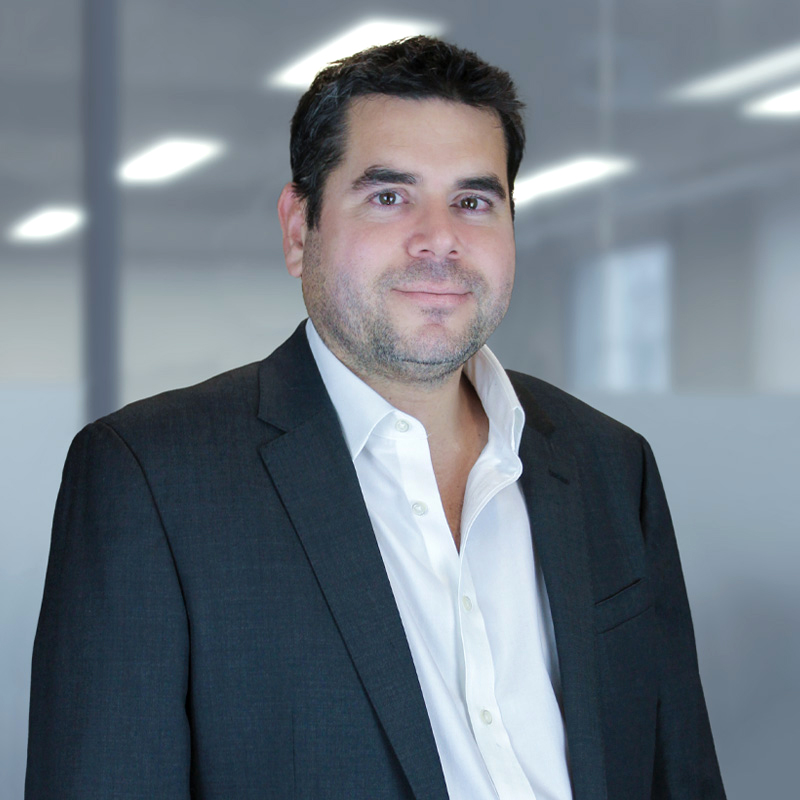Make something of yourself
Jason Spilkin March 2023

America, they say is the land of opportunity. The tale of Thomas Peterffy and Interactive Brokers (“IBKR”), which we first bought in 2021, is one of many American rags to riches success stories giving rise to this adage.
Peterffy was born on the wrong side of the iron curtain, in Hungary, during World War II. The story goes that he was delivered in a hospital basement during a Russian air raid. After the failed Hungarian uprising in 1956, Peterffy’s father emigrated to America without him. A decade later, Peterffy quit his engineering studies and followed his father to New York City. The fact that he spoke no English did not deter him. By then, his father was living with his new wife, and they did not have accommodation to offer, so he gave Thomas $100 and told him to make something of himself.
The determined Peterffy landed his first job at a civil engineering firm, and it was there that he first cut his teeth at computer programming. Later, Peterffy worked as a financial software developer giving him a flavour for financial markets. Hooked, he later decided to throw caution to the wind and go it alone, buying a seat on the American Stock Exchange (“AMEX”). Legend has it that he wrote computer code in his head during the trading day and integrated these ideas into his algorithmic models by night. Throughout his career, Peterffy has always sought to automate manual processes, so as to maximise efficiency which reflects his background. He was a pioneer of automated trading, purportedly causing a stir on the AMEX trading floor in the early 80’s when he first introduced handheld computers.
Over time, Peterffy’s business grew, and he eventually launched a discount agency brokerage. Around the turn of the century, the internet spawned rapid growth in online brokers and IBKR was early to embrace this new channel. Today, IBKR is the leading online broker in the US, having been ranked number one by Barron’s magazine for four years in a row. IBKR’s pitch is simple: they offer more sophisticated clients the lowest cost of execution, with all the platform capabilities they require (multiple order types, algorithmic trading etc.) and value-added services (such as margin loans and listed derivatives). Many of us have heard their advertising slogan in financial media, “Saving you time, saving you money, putting you first”.
Longer term, IBKR seems a structural winner because they offer the lowest prices, whilst generating industry leading operating margins. They are able to do this because their technology platform has been built over the past few decades from the ground up, is vertically integrated, highly automated and supports lower staffing ratios as compared to peers. By way of example, IBKR’s operating profit margins are in the mid-60’s in percentage terms, whilst Schwab’s are in the mid 40’s.
Spare a thought for Robinhood which for many years grew like a weed, offering “commission free” trading to unsophisticated, retail clients. However, there is no such thing as a free lunch. Robinhood’s (unsustainable) growth was dependant on external financing to plug the losses which has now collapsed along with their share price. Robinhood generates revenue through “payment for order flow” (PFOF), which is currently subject to an SEC investigation. PFOF operates something like this: a retail investor inputs a market order to buy a 1,000 Tesla shares which are publicly quoted on the NYSE with a bid at $99 and offered at $101.
Rather than charge a flat $10 commission and immediately execute the order on the NYSE at $101 (the best offer), the broker charges no commission but sells their client’s order into a “dark pool” (a private exchange not accessible to the investing public) in return for a payment and where the client may end up paying a higher price than the offer of $101. One doesn’t need to be a rocket scientist to see the inherent conflict of interest. PFOF is banned in both the EU and the UK. To the extent the SEC banned PFOF, this would materially improve IBKR’s competitive position.
Though the 78-year-old Peterffy stepped down as CEO in 2019, he remains chairman of the board and is the majority shareholder with significant “skin in the game”. As investors, we always prefer investing in companies where management are owners, with a long-term mindset and cognisant of both risks and rewards. As for making something of himself: by 2019 Peterffy was ranked by Forbes magazine as the 65th richest person in the world. I’m sure his father would be proud.
This communication does not constitute an investment advertisement, investment advice or an offer to transact business. The information and opinions expressed in this communication have been compiled from sources believed to be reliable. None of Credo, its directors, officers or employees accepts liability for any loss arising from the use hereof or reliance hereon or for any act or omission by any such person or makes any representations as to its accuracy and completeness. Any opinions, forecasts or estimates herein constitute a judgement as at the date of this communication. Credo Capital Limited is a company registered in England and Wales, Company No: 03681529, whose registered office is 8-12 York Gate, 100 Marylebone Road, London, NW1 5DX. Authorised and regulated by the Financial Conduct Authority (FRN:192204). © 2025. Credo Capital Limited. All rights reserved.

